Ten great books for National Reconciliation Week
Australian Academy of the Humanities 2024-05-31
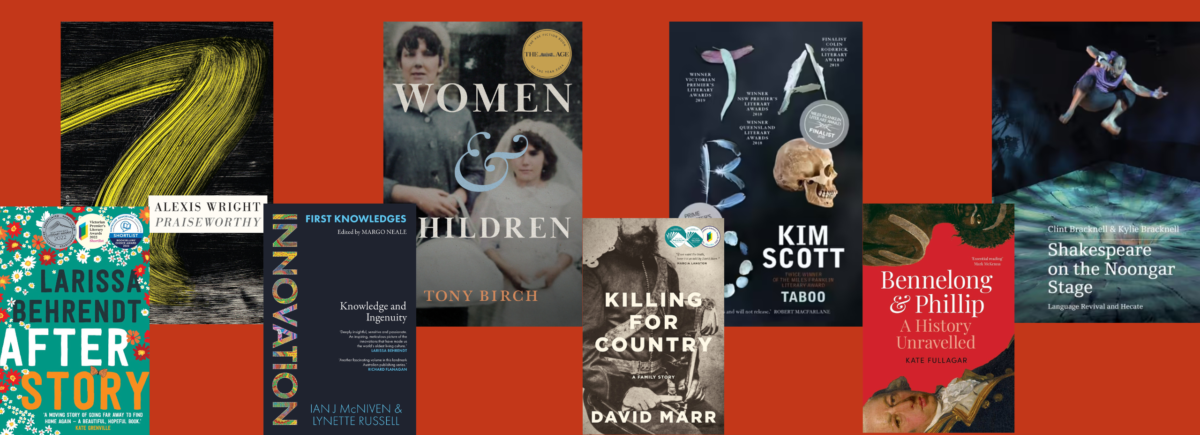
The 2024 theme ‘Now more than ever’ calls on all Australians to amplify and reinforce the voices of Aboriginal and Torres Strait Islander peoples, and to learn about our shared histories.
We’ve collated a non-exhaustive list of ten books for Reconciliation Week which highlight the breadth of Indigenous scholarship and literary achievement, as well as books exemplifying truth-telling by non-Indigenous Fellows.
Taboo by Professor Kim Scott FAHA
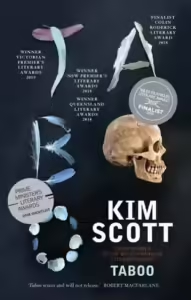 ‘Our hometown was a massacre place. People called it taboo. They said it is haunted and you will get sick if you go there. Others just bragged: we shot you and poisoned the waterholes so you never come back.’ — Taboo, Kim Scott.
‘Our hometown was a massacre place. People called it taboo. They said it is haunted and you will get sick if you go there. Others just bragged: we shot you and poisoned the waterholes so you never come back.’ — Taboo, Kim Scott.
Taboo is Kim Scott’s powerfully charged, award-winning novel which thrusts a young woman centre-stage in a vicious drama that has been playing in her family for generations — an act of extraordinary violence, and an act of extraordinary reconciliation, separated by two hundred years.
Women & children by Professor Tony Birch FAHA
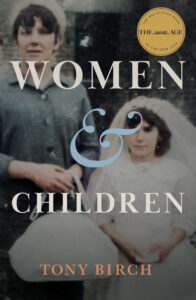 Described as a ‘powerful, personal novel about women, children and justice, from one of this country’s most loved and clear-eyed storytellers’, Tony Birch’s latest novel recently won the 2024 The Age Fiction Book of the Year.
Described as a ‘powerful, personal novel about women, children and justice, from one of this country’s most loved and clear-eyed storytellers’, Tony Birch’s latest novel recently won the 2024 The Age Fiction Book of the Year.
The novel follows Joe Cluny, who lives with his mum and sister in a working-class suburb in 1965. One evening his Aunty Oona appears on the doorstep, distressed and needing somewhere to stay. As his mum and aunty work out what to do, Joe comes to understand the secrets that the women in his family carry, including on their bodies.
Women & children is a novel about the love and courage between two sisters, and a sudden loss of childhood innocence.
Praiseworthy by Professor Alexis Wright FAHA
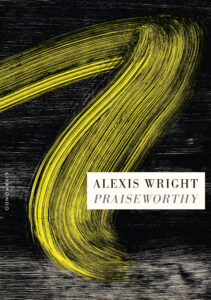 Praiseworthy is an epic set in the north of Australia, told with the richness of language and scale of imagery for which Alexis Wright has become renowned.
Praiseworthy is an epic set in the north of Australia, told with the richness of language and scale of imagery for which Alexis Wright has become renowned.
In a small town dominated by a haze cloud, which heralds both an ecological catastrophe and a gathering of the ancestors, a crazed visionary seeks out donkeys as the solution to the global climate crisis and the economic dependency of the Aboriginal people.
Winner of the Stella Prize, the James Tait Black Prize and the University of Queensland Fiction Book Award, Praiseworthy is a novel which pushes allegory and language to its limits, a cry of outrage against oppression and disadvantage, and a fable for the end of days.
Shakespeare on the Noongar Stage by Professor Clint Bracknell FAHA & Kylie Bracknell
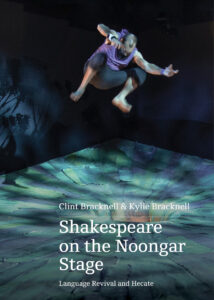 The first adaption of a complete Shakespeare plays entirely in one Australian Aboriginal language, Clint Bracknell and Kylie Bracknell chart the journey of to their passionate project of language recovery and restoration into a highly successful main stage production, Hecate, the adaptation of Shakespeare’s Macbeth.
The first adaption of a complete Shakespeare plays entirely in one Australian Aboriginal language, Clint Bracknell and Kylie Bracknell chart the journey of to their passionate project of language recovery and restoration into a highly successful main stage production, Hecate, the adaptation of Shakespeare’s Macbeth.
The Noongar language of the southwest of Western Australia is a critically endangered language impacted by settler-colonialism and suppressed until the 1970s. Hecate premiered to critical acclaim at the Perth Festival in 2020 and was lauded as a landmark work in both theatre and language restoration.
First Knowledges Innovation by Professor Ian J McNiven FAHA & Distinguished Professor Lynette Russell AM FAHA
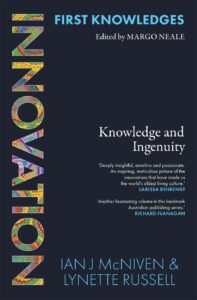 ‘Deeply insightful, sensitive and passionate. An inspiring, meticulous picture of the innovations that have made us the world’s oldest living culture.’ — Distinguished Professor Larissa Behrendt FAHA
‘Deeply insightful, sensitive and passionate. An inspiring, meticulous picture of the innovations that have made us the world’s oldest living culture.’ — Distinguished Professor Larissa Behrendt FAHA
What do you need to know to prosper as a people for at least 65,000 years? The First Knowledges series provides a deeper understanding of the expertise and ingenuity of Indigenous Australians.
First Nations Australians are some of the oldest innovators in the world. Original developments in social and religious activities, trading strategies, technology and land-management are underpinned by philosophies that strengthen sustainability of Country and continue to be utilised today.
In the first book to detail Indigenous innovations in Australia, Ian J McNiven and Lynette Russell showcase this legacy of First Nations peoples and how they offer resourceful ways of dealing with contemporary challenges that can benefit us all.
Monumental Disruptions by Professor Bronwyn Carlson FAHA and Dr Terri Farrelly
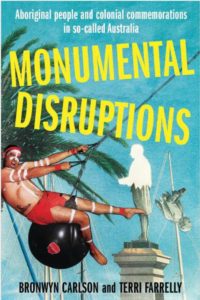 What is the place of Australia’s colonial memorials in today’s society? Do we remove, destroy or amend? Monumental Disruptions investigates how these memorials have been viewed, and are viewed, by First Nations people to find a way forward.
What is the place of Australia’s colonial memorials in today’s society? Do we remove, destroy or amend? Monumental Disruptions investigates how these memorials have been viewed, and are viewed, by First Nations people to find a way forward.
In June 2020, on the heels of Australia’s James Cook anniversary commemorations and statue-toppling Black Lives Matter protests in the USA, dozens of police were sent to guard a statue of Cook in Hyde Park, Sydney. Despite the police presence, two women spray painted ‘sovereignty never ceded’ across the statue.
Scenes like this are being repeated around the world as societies reassess memorials that no longer reflect today’s values. Should they be removed, destroyed or amended? Monumental Disruptions looks for answers..
After story by Distinguished Professor Larissa Behrendt AO FASSA FAHA FAAL
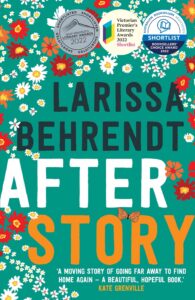 Winner of the Voss Literary Prize and shortlisted for the Victorian Premier’s Literary Awards, and The Age Book of the Year, After story is an engrossing and ambitious novel that follows Indigenous lawyer Jasmine and mother, Della, as they embark on a tour of England’s most revered literary sites. Jasmine hopes the trip will bring them closer together and help them reconcile the past.
Winner of the Voss Literary Prize and shortlisted for the Victorian Premier’s Literary Awards, and The Age Book of the Year, After story is an engrossing and ambitious novel that follows Indigenous lawyer Jasmine and mother, Della, as they embark on a tour of England’s most revered literary sites. Jasmine hopes the trip will bring them closer together and help them reconcile the past.
On the book, Tony Birch remarks,
‘After story is a work of great originality. It is a tale of discovery and understanding, envisioned through the shared experiences of Della and Jasmine on a journey to the “old country”, a place that is not theirs. Through Della and Jasmine we come to understand the depths of familial love, with poignancy, humour and true storytelling.’ — Professor Tony Birch FAHA
Bennelong & Phillip: A history unravelled by Professor Kate Fullagar FAHA
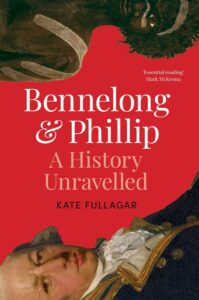 Named one of the Sydney Morning Herald’s Best Reads of the Year, Bennelong and Phillip is the first joint biography of Bennelong and Governor Arthur Phillip, two pivotal figures in Australian history — the colonised and coloniser — and a bold and innovative new portrait of both.
Named one of the Sydney Morning Herald’s Best Reads of the Year, Bennelong and Phillip is the first joint biography of Bennelong and Governor Arthur Phillip, two pivotal figures in Australian history — the colonised and coloniser — and a bold and innovative new portrait of both.
Bennelong and Phillip were leaders of their two sides in the first encounters between Britain and Indigenous Australians, Phillip the colony’s first governor, and Bennelong the Yiyura leader. The pair have come to represent the conflict that flared and has never settled.
‘Kate Fullagar has achieved something astonishing … This is reconciled history at its very best.’– Distinguished Professor Lynette Russell AM FAHA.
Tasmanian Aborigines by Professor Lyndall Ryan AM FAHA
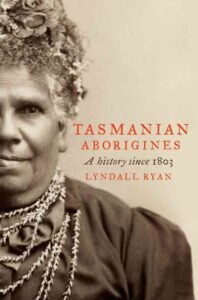 One of the most celebrated works by the late Professor Lyndall Ryan, Tasmanian Aborigines examines how the Traditional Owners were driven off their land so white settlers could produce fine wool for the English textile mills. By the time Truganini died in 1876, they were considered to be extinct. Yet like so many other claims about them, this was wrong.
One of the most celebrated works by the late Professor Lyndall Ryan, Tasmanian Aborigines examines how the Traditional Owners were driven off their land so white settlers could produce fine wool for the English textile mills. By the time Truganini died in 1876, they were considered to be extinct. Yet like so many other claims about them, this was wrong.
Far from disappearing, the Aboriginal people of Tasmania actively resisted settler colonialism from the outset and have consistently campaigned for their rights and recognition as a distinct people through to the present.
Lyndall Ryan tells the story of the Aboriginal people of Tasmania, from before the arrival of the first whites to current political agendas. Tasmania has been the cradle of race relations in Australia, and their struggle for a place in their own country offers insights into the experiences of Aboriginal people nation-wide.
Killing for country: A family story by David Marr FAHA
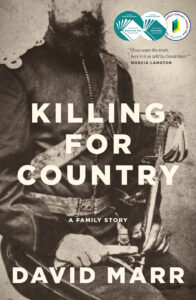 Described as a gripping reckoning with the brutal history of Australia’s frontier wars, Killing for country draws on Marr’s discovery of his own family’s history serving with the Native Police in the bloodiest years on the frontier.
Described as a gripping reckoning with the brutal history of Australia’s frontier wars, Killing for country draws on Marr’s discovery of his own family’s history serving with the Native Police in the bloodiest years on the frontier.
Winner of the 2024 Indie Book of the Year, Marr presents a shocking and unflinching portrayal of his forebear’s time on the frontiers and illuminates a dark, and often hidden, time in our history.
‘Killing For country is a timely exercise in truth-telling amid a disturbing resurgence of denialism.’ — Professor Frank Bongiorno FAHA.
The post Ten great books for National Reconciliation Week appeared first on Australian Academy of the Humanities.